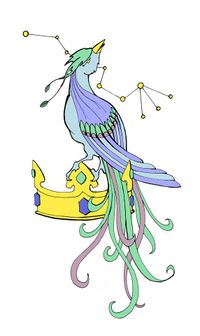Loosen the Shackles

While Agramant is subject to the enmity of the Imperial Conclave, it is illegal to perform this ritual.
While the practice of enchanting armies to make them savage is interdicted, it is illegal to perform this ritual.
Rules
Winter Magnitude 80
Urizen Lore
This ritual is part of Urizen lore rather than Imperial Lore. Any Urizen character with the appropriate lore can master or perform this ritual. A character from another nation who mastered the ritual before it became part of Urizen lore may still perform it, but does so under the usual rules for performing a ritual learned from a ritual text.
Performing the Ritual
Performing this ritual takes at least 10 minutes of roleplaying. If the ritual is cast using the Imperial Regio it requires at least 5 minutes of roleplaying instead. This ritual targets an Imperial army. The general responsible for the army (or the egregore if the general is not at Anvil) must be present throughout. The target of the ritual must be cut with an edged weapon until they bleed, and the performance must involve the evocation of Agramant by at least three of his commonly-used sobriquets.
During the ritual the casters must be in a strong Winter regio.
This ritual is an enchantment. A target may only be under one enchantment effect at a time.
- Attacking order
- Casualties inflicted by this army are increased by three tenths
- Casualties suffered by this army are increased by a fifth
Effects
While under the effect of this enchantment, the general of the target campaign army can issue the cut them down order. However, while the magic persists they lose any existing army quality - they cannot use any special orders or passive abilities granted by those qualities.
While the enchantment persists, the general responsible for the army experiences a roleplaying effect: It feels easy, and natural, to kill or maim people you don't particularly like. It's easy to consider the lives of people you feel no affection for as entirely disposable. When in the presence of someone you actively dislike, you are assailed by visions of their messy death at your hand; dealing with such people becomes actively difficult. The more you dislike someone, the easier it is to imagine killing them in cold blood.
The ritual draws on the power of Agramant, and fills an army with unquenchable hunger to kill as many of their foes as possible. This powerful urge can cause unpredictable additional effects on those fighting alongside the army, especially those with the draughir lineage. Such effects are unpredictable; when they occur they are described in the appropriate Winds of War.
The effect lasts until the start of the next Profound Decisions Empire event.
Assurance
This ritual permanently loses all power if all the Empire's armies go for a year and a day without shedding the blood of an enemy.
Description
This ritual spreads quickly through the soldiers of an army, reducing their capacity to empathise with their enemies. It is subtle enough that the army does not immediately turn on itself, but the captains of any army under this enchantment would do well to seperate any of its members who actively dislike each other. While some armies are relentless because they have superior equipment or advanced combat training, an army enchanted with Loosen the Shackles is dangerous because all of its members are possessed of an unquenchable thirst for the blood of their foes - metaphorically and in rare cases literally.
The enchantment draws on resonances of cruelty, but also the hunger for victory. There are some notes in the original text that, in times and places when Agramant is not under enmity, he sometimes sends heralds or Winter beasts to fight alongside an army enchanted with this ritual. On several occasions, there is talk of Agramant "rewarding" a general who makes particularly good use of the bloodthirsty power the ritual provides with a weapon that further exacerbates their thirst for victory and death.
Loosen the Shackles entered Urizen lore shortly before the Winter Solstice 384YE, as part of a book entitled Ceremonies of the Black Drop Society. The attendants of the Great Library were deeply uncomfortable with the rituals in that book and their presence among Urizen lore, more due to their illegal nature than any sentimental concerns about their origin. They were apparently all submitted at the same time as Treacher's Quill, but Phaleron itself intervened to delay their appearance in lore while it pondered how best to respond. In the end it decided to do the only reasonable thing; present the rituals to the Urizen as part of their lore as agreed when the lore was established. The Celestial Library does not enjoy causing trouble for its Urizeni allies, but the Gift of Knowledge is available to every Imperial citizen; it cannot pick and choose who can contribute rituals via the ritual.
Common Elements
The text mentions that this ritual has obvious resonance with the astronomantic constellation of the Claw. In dramaturgy, a particularly vicious or brutal version of the Captain or the Doctor might be employed, along with a story of murder or mayhem making liberal use of the Blade and the Battlefield. A dramaturgical ritual might also invoke the rarely-employed figure of the Beast, symbolising the way this ritual draws power directly from Agramant.
Some blood magicians are made especially uncomfortable by the way this ritual requires a version of blood magic. The general may be willing, thus avoiding the breaking of the tradition taboo, but there is a sense that the practice is intended to somehow taint or subvert the "pure" practice of their art.
Further Reading
- Childer of the Black Drop - some history about the Childer of the Black Drop